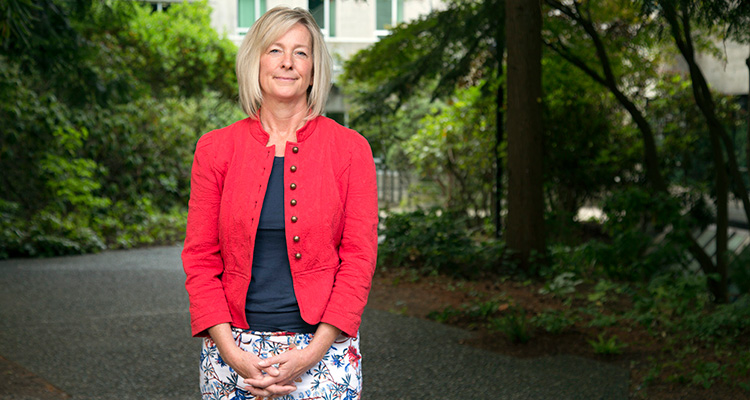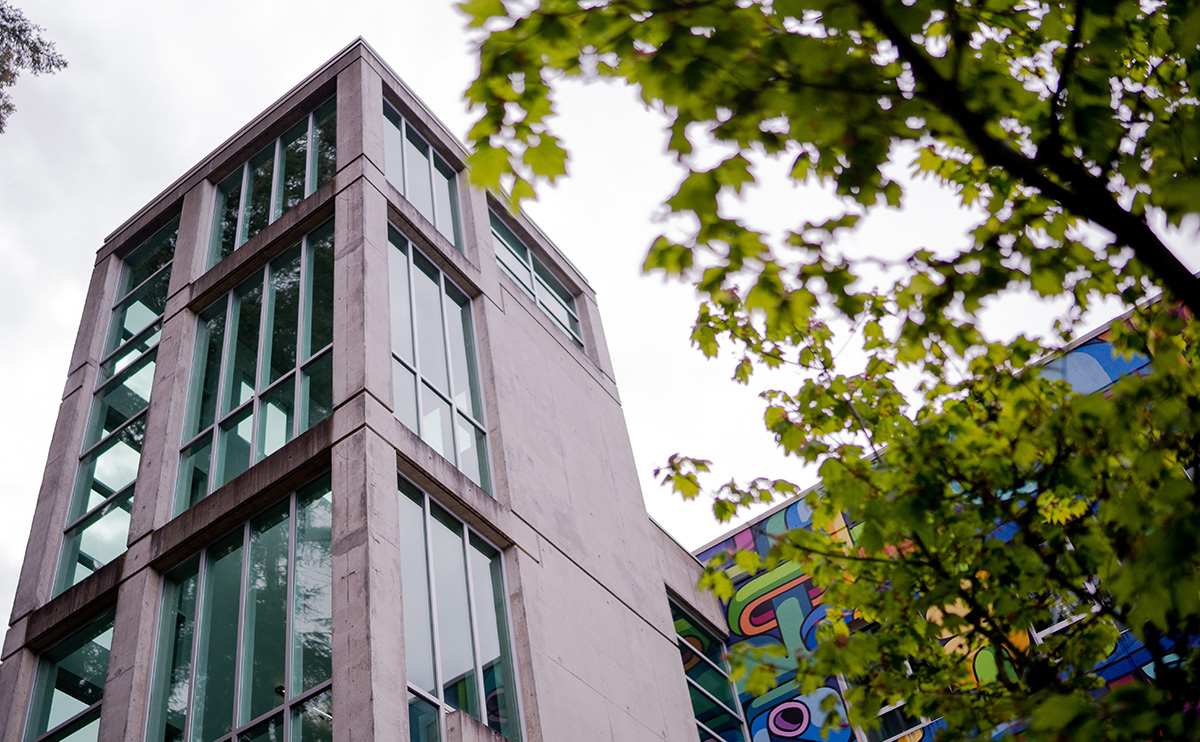This is a bimonthly newsletter featuring community updates from Capilano University President and Vice-Chancellor Paul Dangerfield.
March 2023
A little while ago, my wife and I were hiking around Whistler and we found ourselves on a trail that suddenly disappeared—the map was old and the trail ended abruptly in the bush. By that point we were about 8 km in, so instead of turning back we decided to use our trusty GPS to get us to our destination. Now, we’ve done a lot of off-grid camping and kayaking and the like, and tools like GPS certainly gives us the confidence to know we are safely on track. However, it’s important to note that while GPS can be a great guide, you shouldn’t blindly follow it. You still need to be good at assessing the situation and reading the trail ahead. I believe this is the same for AI—we shouldn’t blindly follow it, but if used in the right context it can be a big help.
I like to tell this story to illustrate my enthusiasm for the potential of Artificial Intelligence (AI) and machine learning in higher education—a topic that is certainly getting up a head of steam in academic circles these days. Right now, media attention is focussed on ChatGPT. In its own definition, ChatGPT is “an AI language model that can understand and respond to a wide variety of topics and questions. For example, if a user asks, ‘What's the weather like today?’, ChatGPT can generate a response based on the user's location and the current weather conditions. ChatGPT was trained on a massive corpus of text data from the Internet, allowing it to capture the nuances and complexities of human language.”
Breeding more cheats or a creative new space?
Perhaps not surprisingly, a recent Leger poll confirmed North Americans are split on whether AI is a benefit to society. While they generally trust AI to complete at-home tasks and answer simple questions, they certainly don’t like the idea of it being used for education. They fear tools like ChatGPT will negatively impact teaching and learning, making students dishonest and lazy and teachers redundant and irrelevant. But what if it was in fact a boon? I believe the real benefit of AI and machine learning can be found in saving students and teachers from tedious hours of memorization, regurgitation and research, and freeing them instead to evaluate, integrate, analyze and imagine.
I view AI as an opportunity—a useful tool that promises to refine and enhance teaching, learning and the overall student experience. I don’t buy the argument that it will breed more cheats—that’s a forever challenge in universities and in life. I’m more concerned that we need to move faster to understand and incorporate the best of AI into our University environments. Because as our VP Academic & Provost, Laureen Styles, recently observed: “The pandemic helped to unfreeze a lot of traditional and historical practices; many students and faculty are already exploring this creative new space—and they are bringing others along with them every day.”
Let’s talk about teaching and learning
To that end, Brit Paris—our new director of teaching & learning—recently launched “Let’s Talk Teaching and Learning,” a series of facilitated conversations to help CapU faculty dig into issues surrounding AI and machine learning. How can we deploy AI protocols ethically and strategically within our curricula? Can these tools help us achieve our intended outcomes differently and better? How can they promote equity and access? Can these tools help underprepared learners? Is VR the classroom of the future? With topics such Chat GPT, Friend or Foe?, Reimagining assessment in the era of Chat GPT, and ChatGPT and the future of academic integrity, the recorded sessions are proving extremely popular.
Imagining a future where AI can enhance the student experience
So where do we go from here? Well, my AI wish list is long, and would include relatively straightforward wins like streamlining course planning so students could enter an area of career interest and get an instant list of relevant courses, or find out in seconds precisely what courses they need to take next term. And then there are more complex things: I like to imagine a future where you could enrol at university and be assigned a virtual coach that stays with you for your entire academic journey and uses an AI framework to help with everything from peer tutoring and course scheduling to housing and financial aid. Far-fetched? I don’t think so. More like inevitable. In the way that calculators helped us with math and computers helped us with quantum physics, I believe AI has the potential to help us to crack open some of our greatest challenges.
There will be hurdles, of course. Managing privacy, for one. And costs for another. At the moment, ChatGPT is free to use—but no doubt it will one day become just another paid tool among many. Post-secondary institutions everywhere are still in the early stages of investigating these kinds of questions, and here at CapU we are grateful to folks like Laureen and Brit for their leadership in this area. They have their eye on the big picture and today they get the last word.
Stay curious,
Paul
Brit Paris, Director of Teaching & Learning
“I’m optimistic students will become more creative and analytical and learn to ask: Is it factual and truthful? Does it have my voice?”
“I sometimes hear from faculty in a tone of panic: All my students are using it! I think the current generation of students have less fear of new technology and with AI they see the value in terms of the changing world they are graduating into. With ChatGPT, they can get quick responses to their questions and use them as a starting point for their own critical thinking. Of course, they still need to evaluate the quality of the answers they receive, and to find the gaps that need filling. The skillset of a first-year student becomes not, ‘Can you write an essay?’ but instead, ‘Can you analyze and critique the substance and sources of a written essay?’ I recently tested ChatGPT after a faculty member asked if I had any rubrics for personal reflections that I could share. It not only gave me some really good categories to consider but reduced my sense of I-don’t-know-where-to-begin. It gave me a strong starting point—something that could be refined to serve my specific needs.”
Laureen Styles, VP Academic & Provost

“Faculty have shifted from teachers-as-knowers to facilitators-of-learning.”
“Our faculty are good at looking for where there are opportunities to level up teaching and learning. AI is a relatively new approach—one of many—and I am a proponent of multiple approaches to facilitate learning. But ChatGPT really blew up the conversation! And as these new avenues open up, we have to create spaces for dialogue and support for creative exploration while we work to improve the learning experience for students and faculty. As someone with significant faculty experience, I know that’s the sweet spot. There’s also a ton of opportunity for increased efficiencies in processes and practices with AI—yet it’s not a one-size-fits-all proposition. I look forward to working together at the University and with other B.C. post-secondary institutions as we figure out the implications of AI on our sector. We all want an educated citizenry and we will definitely need to learn from one another.”


